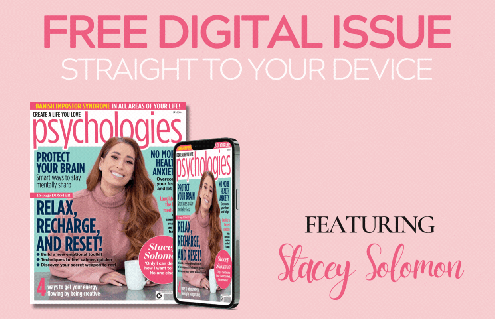Resilience Strategies for Coping with Covid from New Zealand
These are fast changing, unpredictable days and we have no blue-print for how to respond so here are some top words of wisdom from our New Zealand cousins.

I have written before about my admiration for Jacinda Ardern the prime minister of New Zealand and how compassionately she dealt with the Christchurch attacks last year. What follows is not my work but was on a leaflet forwarded to me by an old colleague (thank you Jon) whose daughter lives in New Zealand. This is a flyer sent out to support people emotionally at this weird time and I just love it’s sage and practical help . Here is the link to the actual thing; wish our leadership were so wise.
“Real-time Resilience Strategies for Coping with Coronavirus.
We have entered challenging times, requiring us all to consider how our thoughts and actions might help or hinder our own resilience and that of those around us. Below is our brief guide to coping in the days ahead, based on the best of science but also our own (reasonably broad) lived experiences of working in emergency management and resilience training programmes both here in Aotearoa NZ and internationally. These are some of the practical strategies we’ve seen help.
Choose where you focus your attention.
Even at the best of times, humans are hard-wired to notice threats and weakness. During the worst of times it is more important than ever for our psychological health to tune into what’s still good in your world. Psychologists call this ‘benefit finding’ and it is a key resilience skill. Start your days or meetings with a quick fire round of sharing
good stuff – this also builds connection. Using the hashtag #htgs (‘hunt the good stuff’ originated in the US Army’s Military Resilience Training) works well here.
Deliberately seek out the people (and do the stuff) that make you happy.
Research shows how vital experiencing positive emotions is for our resilience. Negative emotions are contagious, and prolonged feelings of helplessness are strongly associated with depression. Given negative emotions and experiences stick to us like Velcro while positive emotions and experiences bounce off like Teflon, aim to punctuate your days, evenings, weeks and weekends with as many positive emotion experiences as possible. Barb Fredrickson from the University of North Carolina at Chapel Hill identifies ten different positive emotions to consider: love, joy,
gratitude, serenity, interest, hope, pride, amusement, inspiration and awe. Frequency, not longevity, is key.
Strong and supportive relationships are the number one predictor of wellbeing, across the lifespan.
Maintaining those connections during times of crisis and challenge is more important than ever. Feeling isolated from others is strongly related to depression, anxiety and other forms of mental distress. If you can’t catch up with your key supportive people face to face right now, find other ways of doing so. And if you’re not used to using other options such as skype, zoom, or social media apps to call,find someone who can demystify and demonstrate these for you.
Keep supportive daily routines or create new ones if you’re now holed up at home.
“As Normal as Possible, as Flexible as Necessary” is one colleague’s mantra for these times. Maintaining regular routines (meal times, bedtimes, exercise, work etc.) tells our brains it’s safe to dial that stress response back down and prevents us from feeling more anxious. But, unprecedented times call for unprecedented responses: be prepared to have your best plans change, and open-minded enough to conjure up or accept new and different ways of doing things.
Focus on what matters, and what you can control.
Concentrate all your attention and resources (psychological, social, physical, emotional, knowledge) on the things that matter and that you can actually influence. Easy to write, hard to do we know, but worrying about things you cannot change will only upset you and frustrate you further.
Watch your media diet
Keep using the “helping or harming” test. Take a good look at your media intake over a 24 period and ask
yourself, “is reading these articles, watching these videos, or reviewing these headlines, helping or harming the way I’m feeling and functioning?” Don’t let those images, videos and notifications invade your day, your head, or your world. If the global news is making you feel overwhelmed, turn it off. Claim back some control by switching them off. Choose where you get your news updates from very carefully.
Find the right people to talk to.
(Yes, the ‘helping or harming’ test applies to the people in your life too). Share your thoughts and
feelings, but don’t get swept up in pointless speculation. Stick to the facts and avoid the drama queens. Keep asking yourself, ‘Is this conversation helping or harming me in my quest to feel good and function as best I can right now?’
Help yourself by helping others.
This takes the attention off ourselves and we all need to feel useful and needed right now. The research is unequivocal: being able to give as well as receive is hugely important for our life satisfaction. How can you help vulnerable neighbours, colleagues, friends or strangers – emotionally, physically, practically?
Give your brain a holiday from Coronavirus.
Avoid ‘rumination’ by giving your poor overly-busy wandering mind a rest by deliberately participating in seriously engaging activities. Be that the crossword, Netflix, following a new recipe, dancing, listening to music or a Podcast, reading, chatting on the phone, playing dress ups with the kids, drawing, or meditating, you’ll know your thing.
This is the best way to turn off our running ruminating minds which otherwise can chew over worries, making us feel worse.
Have a ‘timed wallow’.
No good ever comes from ruminating or wallowing in misery and self-pity for over a minute – put a timer on,
and then phone a friend or find something really distracting to do.
Be kind to yourself and others.
Remember everyone is doing their best to navigate these exceptional times. A little kindness will go a
long way. A lot of kindness is even better (even to the drama queens).
Keep safe and don’t be reckless.
Stress breeds unusual behaviours and can sometimes prompt us to forget the simple things like wearing our seatbelts, stopping at red lights, using Personal Protective Equipment at work, turning off taps, and thinking it’s helpful to drink ourselves in to a stupor. It’s not.
Try to stick to your usual routines
As you’ve no doubt been reminded by now, this is a marathon, not a sprint.”
My aim with everything above and below is to help you find peace and ease as often as possible through these strange, uncertain and fast changing times
So..if you missed my live meditations this week, here the videos are for you and I’m adding them to the podcast too for those of you who prefer to listen that way. Catch up on what you missed here:
If you want to meet up live for this coming week’s meditation, with the first one on Sunday night: a guided visualisation for families and then 3 more meditations including one on stress, then click here to find the links.
I wanted to find out what the young people were thinking and feeling about it all so click on the link to find out more What do the kids say about covid?
I’ve also been musing about what ‘freedom’ means at this weird time so click here if you are curious.
We are not alone in this crisis, so read about how other people in other places are finding their way through it by clicking here.
If you, or anyone you know, is struggling with stress, hop over to my site and sign up to receive my free course on how manage and work with your emotions (which I made in conjunction with Psychologies Magazine)
I’m still coaching online and by phone if you need me.
Take care and look after yourselves and I’m looking forward to being in connection with you live on line and here.
Love,
Julie
Julie Leoni
Coach, author, podcaster, facilitator, Yoga and psychology teacher, learner
I have over 30 years of experience and qualification in various therapeutic and meditation/mindfulness based approaches. I work with change. Some changes we chose, others happen to us. Sometimes we know we want to change but don't know how. Sometimes we don't want to change but external events or people are forcing us to change. The menopause, children leaving home, the end of a relationship or job, becoming a parent, coming out, bereavement are just some of the personal changes I support people with. I also work with people who want to make changes to their life and wider world in response to social issues such as Covid, the climate crisis and racial, sexual and gender inequalities. Times are changing whether we want them to or not and we need to be nimble, agile, curious and open in order to part of the new story emerging. Work with me to get clear on what matters to you, what makes your heart sing and what kind of future you want for yourself and those you love. It is possible to live differently, get in touch to explore how.


